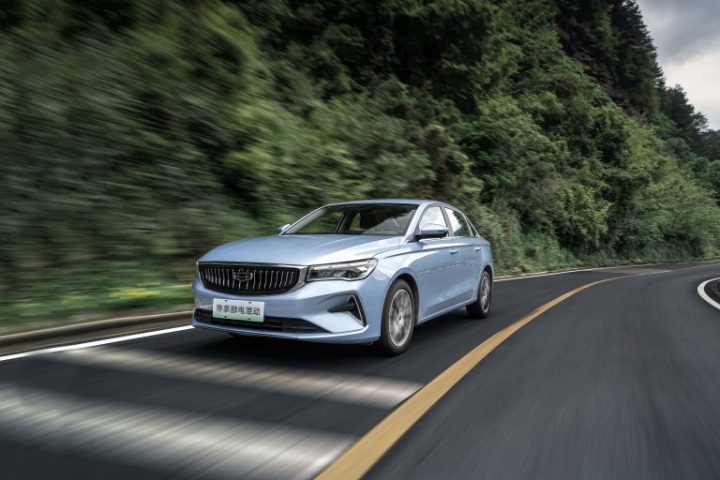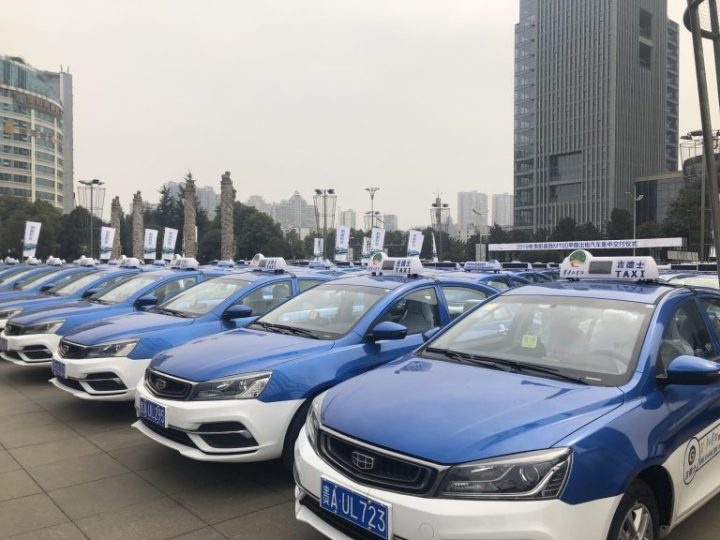
In 2020, more than 50 countries around the world signed an agreement to reach carbon neutrality by 2050. The success of their efforts may come to define the 21st century and even the future of life on our planet.
While agreement on the best approach is hard to find, it’s clear that exploring a wide variety of options enables countries and organizations to quickly determine which solutions may hold the best value.
Geely Investing in E-Fuels
In the automotive world, the current consensus is that battery electric vehicles are the best choice, offering zero tailpipe emissions and around one-third the carbon footprint over their lifespan than conventional ICE vehicles. However, ramping up infrastructure and achieving universal coverage of electric cars is expected to take a couple more decades yet, and interim solutions will be needed to address the urgent need for action. So, what are the options?
The idea of ‘green fuels’ is gaining some traction, and one such fuel is methanol, which Geely Group has been investing in heavily since 2005. In their application of green methanol as a fuel, the brand has taken a holistic approach to consider the entire ecosystem of methanol fuel, from production using renewable methods to active use cases across China.
Geely’s work with the production of ‘green methanol’ takes us back to 2015 when they invested in a little-known Icelandic company called Carbon Recycling International (CRI). Based just outside of Reykjavik, CRI had been looking at ways to make productive use of the naturally produced carbon dioxide created by the island’s volcanic activity.
By capturing the carbon dioxide and combining it with hydrogen, produced via electrolysis at the CRI plant using renewable energy, CRI was able to produce green methanol as a fuel, taking a waste product that would enter the atmosphere of its own accord and repurposing it.
The success of this program impressed Geely enough to bring the technology back to China where they constructed the country’s first carbon dioxide-to-methanol recycling plant in Anyang. However, rather than using volcanic activity to generate carbon dioxide, Geely instead looked to tackle the more prominent issue of carbon emissions from heavy industry, to prevent them from entering the atmosphere at the source.

Heavy industry is one of the planet’s largest polluters and, while many different efforts are being taken to reduce the impact the different production methods have on the environment, some things are not easy to make cleanly. With carbon capture technology, Geely can take that waste carbon dioxide from heavy industry before it enters the atmosphere and repurpose it as a different, cleaner burning fuel, methanol.
This is the reason methanol can be classified as a ‘green’ fuel. Since the carbon dioxide emissions would have entered the atmosphere anyway, they are effectively ‘free’ for the vehicles that will use the methanol, thus roughly halving the amount that would have been produced otherwise. But that’s not all,
because methanol also burns significantly cleaner than petrol, producing 99% fewer sulfur oxides, 60% less nitrogen oxides, and 75% less particulate matter.
The results are impressive. While efforts by automakers across the world to reduce the carbon footprints of their cars have reduced CO2 emissions for passenger cars, the average amount across Europe per car was still 116.3 grams per kilometer from well to wheel in 2022. By contrast, the previous generation non-hybrid Geely Emgrand M100, Geely’s methanol-powered passenger car, emits just 46 grams per kilometer of CO2 kilometer from well to wheel.
The group employs more than 50,000 people and operates 12 plants, and five global R&D centers in Hangzhou, Ningbo, Gothenburg, Coventry, and Frankfurt. The Group also boasts four global design studios in Shanghai, Gothenburg, Milan, and Coventry respectively with over 1000 members of staff in total. Geely Automobile Holdings, a subsidiary company holding controlling stakes in Geely Auto, Lynk & Co, and Zeekr has been listed on the Hong Kong Stock Exchange since 2005.
In 2022, the brands under Geely Auto Group management sold over 1.68 million units, with new energy vehicle sales increasing 48.3%, and exports growing 38%.
The controlling shareholder in Geely Auto is Zhejiang Geely Holding Group (ZGH), which is also the parent company of Volvo Car Group, Geely Commercial Vehicles Group, Geely New Technology Group, and Mitime Group. Zhejiang Geely Holding Group is committed to vigorously pushing the development of world-renowned automotive and mobility technology brands providing high-quality products in multiple market segments to meet different levels of consumer demands.

Results like these are one of the core reasons behind the decision of the Guiyang local government to convert the majority of the city’s taxi fleet to methanol-powered cars. That and operating costs of just 0.3RMB per km.
As of May 2023, more than 90% of the city’s fleet is running methanol-powered taxis, including several generations of the Geely Emgrand. The city holds the unique position of being possibly the only methanol ecosystem in China, making it the ideal destination for such a large fleet. Over the past 15 years, the methanol-powered fleet has accumulated over 10 billion kilometers of use, leading the city’s dependence on oil to be reduced by a not-insignificant 8%.
Geely’s efforts with the methanol-powered Emgrand continue to evolve and the latest version, built in the brand’s Guiyang factory, has just begun service in the fleet.
The new model introduces hybrid technology, with the Emgrand M100 Hybrid capable of running on pure electric energy at low speeds and using both electric and methanol power when needed for a combined 264hp. What’s more, the Emgrand runs on 100% methanol rather than a blend of methanol and petrol as seen in some cases.
So while methanol as a fuel is not the singular answer to the planet’s energy challenges, it undoubtedly has a promising part to play. The proven flexibility, measurable success, and genuine real-world use cases demonstrated by Geely’s investments in Guiyang and beyond are just a snapshot of the potential of this renewable fuel and there’s much more still to come.




